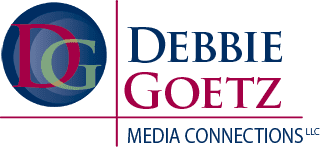Freedom of Speech, Not Freedom from Consequences
October 19-25 is set aside as Free Speech Week. It was started in 2005 as a way to raise awareness of the importance of both freedom of speech and of the press in a democracy.
Of course, there are many who say that freedom of speech is being curtailed in 2020 with social media sites suspending accounts and even banning people. Examples of persons banned on social media include Milos Yiannopoulos, editor of the conservative news website Breitbart, after he encouraged others via his Twitter account to bully comic actress Leslie Jones, after she appeared in the all-female remake of “Ghostbusters.” Another notable person who was banned from Twitter was YouTube star PewDiePie when in 2016, he joked that he had joined ISIS.
While these actions are repugnant, some could argue that Yiannopoulos and PewDiePie were either expressing an opinion or just attempting (and failing) to be funny and that opinion and humor are protected under the First Amendment. That is absolutely correct, they are protected under the First Amendment. Yet, what many have failed to recognize is that while the First Amendment constrains the government from controlling free speech, it doesn’t constrain corporations like Twitter from controlling speech. After all, Yiannopoulos and PewDiePie weren’t fined and arrested after their social media posts and campaigns.
While we are all free to speak, write and post on the Internet whatever ideas we choose, we have to face the consequences of what we say. The vast majority of time our speech will be ignored and we can go about our daily lives. The times our speech isn’t ignored and the attention it is receiving isn’t positive, is when it is important to remember that we aren’t free from having to deal with negative fallout as a result of our social media posts. What makes our speech on social media so tricky is that there is no way to predict what kind of response you’ll get.
If you are an editor of a news website or a celebrity, the occasional bout of negative publicity is the price you pay for being public figures and yes, there are some individuals who are controversial just for the publicity it generates. Most private individuals and small businesses don’t have the resources to weather a hailstorm of reactionary social media posts and subsequent boycotts and shunning. That’s where thinking before you post comes in. You might mean for a certain post to be funny or want to make a sly comment on current events, but others might not agree with you. Before you post something that is potentially questionable, share the post with another person in your company. If that person has misgivings about the post, then it probably best not to broadcast the post.
Choose to be known for your business offerings, not for some off-color social media post that landed you in hot water. Think of it as analogous to good eating habits. If you eat a steady diet of junk food, your body will pay the price with the development of diabetes, heart disease and obesity. If you choose healthy foods like fruits, vegetables and lean proteins, you will experience better health. Thinking and editing before you post will allow you to get your ideas out there with minimum negativity and promote your business with maximum positivity.
